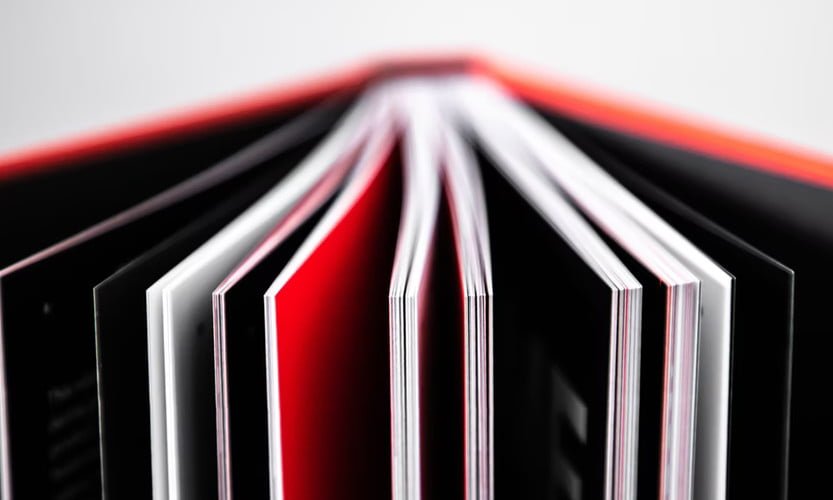A short guide to obscenity, profanity, cussing, and creative swearing in the novel.
In this post, we discuss swearing and bad language when it comes to writing fiction.
(And, uh, trigger warning, guys: this post is going to use some naughty fucking language, so if that’s a problem for you, you may want to hasten away to the unthreatening pastures of Cozy Mystery or Amish Romance. Right here, on this post, we’re gonna swear like a GI with Tourettes.)
Is that fucking OK with you? It is? Cool.
So the questions we’re going to face are:
- Is it OK to swear?
- How much do novelists (in a fairly, though not extremely, gritty genre) generally swear?
- And are there any rules which govern the scale or amount of your swearing?
And I should fess up.
I’m not super-potty mouthed myself, but I’m perfectly comfortable with using obscenity and profanity in general fiction. This novel of mine, for example, contains 125,000 words, of which no fewer than 78 are ‘fuck’ or its variants.
First Lesson: Swearing Is Ok
Which suggests that the first lesson of this short post is a simple one: it’s okay to use the word ‘fuck’ for effect, depending on genre.
And to be clear: mine is a crime novel. Its heroine (and first person narrator), Fi, is gritty and direct in her speech. For me and my story, not to use the word ‘fuck’ would be to betray both character and story. Because Fi often swears, I have to. There’s no other way to do it.
In short, the presence of at least some swearing in the story is as important to the atmosphere and mood as the presence of the Welsh hills themselves. Bad language doesn’t have to be lazy writing: it’s often essential.
Be True To Your Genre
Swearing in itself doesn’t matter. All that matters are your story and your characters. If some obscenity is right for those things, then it’s right to use it.
For example:
- War fiction (even, quite possibly, historical war fiction) is probably not going to come over as very realistic, unless there’s some bad language. That doesn’t mean your characters should swear as much as real soldiers in actual combat: your job, always, is to create the semblance of reality; your adherence to actual reality is much less important.
- For the same kind of reason, contemporary grit-lit, all sink estates and drug dealers, will sound wrong if characters don’t swear fairly copiously. A boozy, relaxed contemporary love story won’t probably have copious swearing, but it too is unlikely to want to avoid it completely.
More broadly, swearing is exciting because it’s taboo-breaking: the amygdala in the brain actually responds differently to swearwords than it does to any other type of language. In effect, obscenity gives the writer a very specific colour that nothing else quite does.
Possibly, your canvas doesn’t need that colour – Jugular Crimson, let’s call it – but if it does, or might, there’s no real substitute.
And because swearing is taboo-breaking, it also introduces an edge of force, of toughness that otherwise only violence, or the threat of violence, quite can.
My own crime novels, for example, do feel quite dark. That is: they speak of a world where violence is possible and where its consequences actually matter. (No Colonel White bumped off with a candlestick, and no one quite caring about his death, except that it creates a jolly good mystery.)
But although my novels carry that edge of force, of possible violence, they aren’t actually especially violent at all. There’s not a lot of on-screen violence. Very few gun-fights, punch-ups, car chases and the rest. But my violence, when it comes, is, I hope, well-chosen, and a spatter of bad language in the book maintains a sense of edge, of pressure.
At the same time, if my story were something quite else – a light romance set around a pensioners’ knitting circle – excessive use of foul language would be quite inappropriate. Indeed, if a mild mannered knitting grandee were brought to the point where she said something like, “Get out, damn it, get out!”, it might well be that in the context of that novel that ‘damn it’ indicated some very strong emotional turbulence.
It might, in other words, work exactly the same way as “Go fuck yourself” in a less genteel novel.
What To Do About Reader Emails
I should say as well that any vaguely sweary author with half-decent sales will get emails from (mostly American) readers complaining about the use of the f-bomb. If you make much use of blasphemy, you’ll get similar comments.
And, well, I don’t disrespect those readers or their comments. They’re not simply entitled to their views. At a guess, I’d say those readers are more likely to mow their lawns, be helpful to strangers, pay their taxes, and in countless other ways be upstanding members of society.
But as an author, I think you just have to accept that you can’t please all the people all the time. You’ll kill your novel if you even try. So when I get negative reviews to the effect that “this guy can write, but it’s all a bit too dark / sweary / graphic for me”, then I just think fine. I’m just not writing the kind of book that reader was ever going to like. As long as I please “my” core readers, I ought to be happy.

Swearwords On The Page Are Stronger Than Swearwords In Life
Having said that, you also do need to bear in mind that swearwords sound fiercer on the page than they do in life. Soldiers may use swearwords freely. (One possibly apocryphal tale from WW2 has a Scots driver analyse his broken car with the fine sentence, ‘the focking focker’s focking focked.’) But to use them on the page as freely as soldiers do in real life – that’s probably excessive. You are imitating the effect of reality, not reproducing it.
For the same reason, repetition grates on the ear, so even if you want a scene full of strong expletives, it’s probably worth tossing in some variety, or at least making sure that any repetition looks chosen, not inadvertent.
Use The Expressive Power Of Creative Swearing
It’s a cliché among the sort of people who don’t like bad language that the use of expletives arises from a lack of imagination. Well, perhaps, in some contexts. But in others, even an expletive can be a writerly word so long as it’s deft, well-chosen. Here’s a tiny snippet from my third Fiona Griffiths novel. (And it’s naughty, but I like it.)
I have a brief interview with the duty solicitor. She seems like a nice woman – Barbara, mumsy, keen to help. I tell her to fuck off. Then sit without speaking for ten minutes. Then we’re done.
For my money at least, that instance of the word ‘fuck’ is precise, neat and well-chosen. The description of Barbara – mumsy, nice, keen to help – gets the reader thinking along one path. (Roughly, “Oh, Fi is going to hit it off with this nice duty-solicitor”).
Then, boom, that swear word blows everything up. It trashes that particular train of thought. It’s particularly shocking here because Fi is deliberately being rude to someone who is actually nice and helpful.
And that whole 180 degree pivot occurs in the space of a single word. The abrupt ending of our hopes for Barbara mirrors precisely what has happened in the interview room itself.
For those (few) prudes who don’t like swearing, I have to ask: is there anything that could have completed that pivot more emphatically and more neatly? I want to say, no.
In contexts like that, I don’t think you can say that swearing is lazy writing. I think it can be good, efficient, well-chosen writing.
When Swearing Is Just Lazy
There are examples, however, when swearing is just lazy. Take this snippet for example (from Old Habits):
Ghost malls are even sadder than living people malls, even though malls of the living are already pretty damned sad places to be. And let me get this out of the way right now, before we go any farther; I’m dead, okay? I’m fucking dead. (My italics)
The italicised bits – a damned, a fucking – are used just as intensifiers. A substitute for the word ‘very’.
So here’s a plea from me:
Harry’s Plea
~~~ Please don’t use swearwords as simple intensifiers ~~~
Swearwords are beautiful and special things because:
- They are shocking – taboo-breaking
- They are like a small form of linguistic violence
- They can mark character traits or moods or turning points
- They can be used for comic effect
If all your characters use swearwords in all moods, elevated or not, then you’ve basically drained the Swearword Proper of all function. You do just have another way to say “very” . . . and we’ve got a million alternatives for that already.
Did you know? Jericho Writers is a club for writers. That is: we are a club for people like you. We’d love it if you chose to join us. Membership is low cost and it’s cancel-any-time, so you can just try it and see. You can learn lots more about what we do and why you might love us right here. And, you know, it’s just one click to find out more. One tiny little click.
How Much Swearing Is Normal?
I mentioned that my book of the moment contains about 70 uses of the word fuck (and its derivatives: fucked, fucking, and so forth.)
Is that a lot? Or a little?
I didn’t know, so I decided to compare notes with some crime writer buddies of mine. To that end, I created a brand new tool, which I immediately christened the Fuckety Index. You calculate your personal Fuckety Score as follows:
The Fuckety Index
(A) Find the number of times you use the word “fuck” in your novel
(B) Take your total novel word count, and divide by 1000 (so a 80,000 word would score 80)
(C) Your Fuckety Score = A divided by B
Users notes:
The easiest way to count your “fuck”s is to Find the word fuck and replace with the word fuck. Then hit Replace All. You’re making no actual changes to your novel, because you’re just replacing one word with the same thing, but you are also picking up all those fuckeds, and fuckings, etc. If you are using MS Word, you’ll get a message like “34 changes made” and that number is the one you need for (A) above.
Fuckety Score of 0
You are writing Amish Romance. Or Cozy Mystery. I don’t know why you’re reading this article.
Fuckety Score of 0.1 to 0.5
Your book is unsweary. Any mainstream fiction can have a Fuckety Score in this range and not be thought of as especially sweary.
Fuckety Score of 0.5 to 1.0
This is pretty normal for any gritty genre, such as crime. I’m about average, in fact, for my genre.
Fuckety Score of 1.0 to 2.0
Yep, you’re pretty fucking sweary, even if you are writing in a reasonably gritty genre.
Fuckety score of more than 2.0
I’m scared of you. You are very sweary and are probably dangerous. So,um, I think your writing is great, yeah? Not too much swearing. No, no. Not at all.
** Backs gingerly away **
When Not To Swear
If you’re writing for young children, then bad language is just not okay.
When it comes to writing for Young Adults, swearing is allowed, so long as the themes of your novel demand it and you’re writing for the more mature YA audience (that is, one likely to be making its own book selections). US audiences too tend to be more prudish than British ones: many is the time I’ve been reproved by American readers for my use of the ‘f-bomb’. I’ve never yet had a British reader complain.
On more general fiction, you just need to feel your way for yourself. If you’re writing Jane Austen era romance, you might wish to avoid obscenity. On the other hand, the probability is that past ages swore much more than we do, and a writer like Antonia Hodgson deals with the Georgian period in a very different way from Jane Austen.
But it’s your call.
Happy swearing writing.
Jericho Writers is a global membership group for writers, providing everything you need to get published. Keep up with our news, membership offers, and updates by signing up to our newsletter. For more writing articles, take a look at our blog page.










